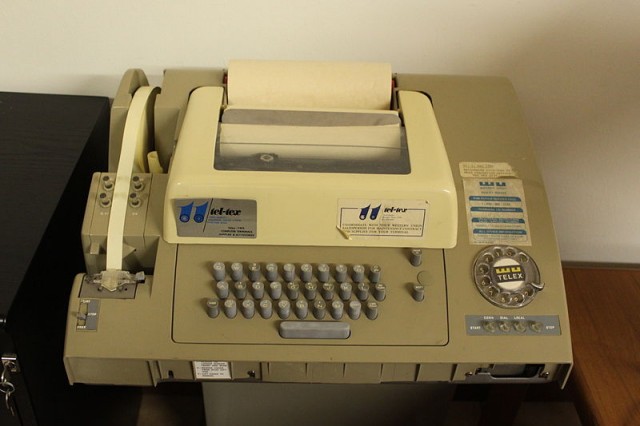TELEGRAM NOT DEAD. STOP.
Despite end of India's national telegraph service, telegraphy lives on.
The Telex machine is kept so clean and it types to a waking world. Still.
But news of the death of the telegram has been greatly exaggerated. "Somehow they got the impression that this meant the end of telegrams worldwide," Colin Stone, Director of Operations for International Telegram, a telegraphy service based in Canada, said in a phone conversation with Ars. "We'll still offer services in India, even though the state-run service is closing."
Samuel Morse's version of telegraphy—Morse code over the wire—died a long time ago. It was replaced by Telex, a switch-based system similar to telephone networks, developed in Germany in 1933. The German system, run by the Federal Post Office, essentially used a precursor to computer modems and sent text across the wire at about 50 characters per second. Western Union built the US' first nationwide Telex, an acronym for Teleprinter Exchange, in the late 1950s.
The precursor to e-mail has been dealt a wallop by instant messages, SMS texts, and other instant communications, to be sure. Western Union shut down its telegram "business messaging" service in 2006, but it was picked up by International Telegram, which operates worldwide. And there are still other nationally operated telegraph services. "Italy still has a printer and Telex line in every post office," said Stone. "And people still send loads and loads of telegrams there. It's a state-run telegraph service, so I don't know if it's profitable or not. But it's exactly as the service was run in India and the same as it's been for 50 or 60 years."
In countries where Telex no longer has the reach it once had—a group India will soon join—International Telegram sends messages the last mile using another "obsolete" messaging system: the postal service. Messages received by a central office are "sent out as express post items," Stone said, so telegrams are usually received the next day now instead within a couple of hours. "But in large cities, you can still get the message delivered same day," he added.




No comments:
Post a Comment